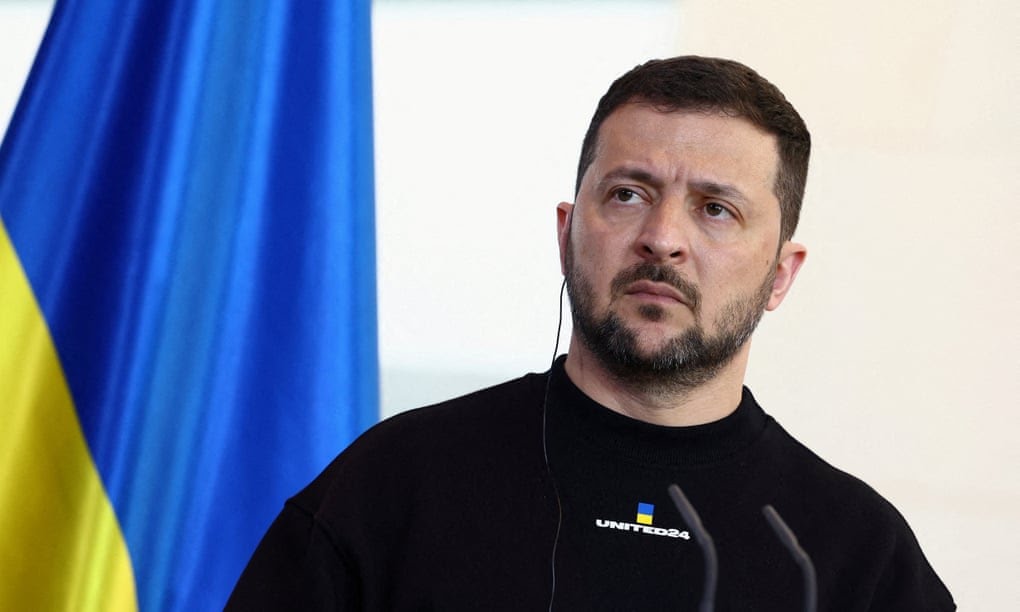Volodymyr Zelenskiy, the president of Ukraine, has come in Japan to discuss more military assistance from the US and other G7 nations as his forces get ready for a significant counteroffensive in the conflict with Russia.
Zelenskiy, who was supposed to attend by video link, flew in on a French government jet on Saturday afternoon amid tight security to Hiroshima, where the G7 leaders are meeting.
He was spotted leaving the plane while donning his well-known olive-green sweatshirt, ahead of a day of discussions with the G7 and other leaders as part of his most recent effort to increase international support for Kyiv.
He tweeted shortly after arriving: “Japan. G7. Important gatherings with Ukraine’s friends and allies. Security and improved teamwork are essential to our success. Today will bring closer peace.
Sunak, according to UK sources, had suggested that Zelenskiy attend the G7 to present his case in person during a phone call he had approximately a month before. “It is an opportunity for President Zelenskiy to address a number of world leaders in one place at a time when western leaders are aligned,” said Sunak’s official spokesperson.
The G7 leaders reiterated their support for Ukraine in their final communiqué, which was published one day earlier than anticipated.
In violation of fundamental norms, regulations, and values of the international community, Russia’s savage war of aggression poses a menace to the entire world, it stated.
“We reaffirm our unwavering support for Ukraine for however long it takes to achieve a full, just, and lasting peace,” the statement reads.
A day after the White House declared it would allow allies to provide Ukraine with US-built F-16 fighter fighters, Zelenskiy arrived in Hiroshima.
Zelenskiy called the choice “historic” before departing for Japan and said he was looking forward to “discussing the practical implementation” with the G7 nations.
A group tour of a museum detailing the atrocities of the US atomic bombing of the city in August 1945 and a memorial to the thousands of victims marked the start of the summit on Friday.
Zelenskiy is also anticipated to visit the peace museum and cenotaph amid worries over Russia’s refusal to rule out the deployment of tactical nuclear weapons in Ukraine, according to Japanese media.
The G7 leaders stated in their communiqué that they were dedicated to “reaching a world free of nuclear weapons with undiminished security for all, through pursuing a realistic, pragmatic, and responsible approach. We reiterate the significance of efforts to promote nonproliferation and disarmament in order to build a more secure and stable world.
The G7’s announcement of fresh penalties against the Kremlin on Saturday is anticipated to be followed by discussions on Ukraine on Sunday.
Zelenskiy’s tour will also allow him a once-in-a-lifetime chance to meet with the heads of strong non-aligned nations like Brazil and India who have refrained from denouncing Russia’s incursion.
Zelenskiy will take part in Sunday’s discussions about Ukraine with G7 leaders and a session on “peace and stability” that will also involve invited non-member nations, according to the foreign ministry of Japan.
There are worries that the conflict in Ukraine would embolden China, which has been building up its nuclear arsenal, to invade Taiwan. Beijing considers the island to be a province gone rogue and has threatened to annex it, using force if necessary.
The communique reemphasized the significance of a “free and open Indo-Pacific, which is inclusive, prosperous, secure, based on the rule of law, and that protects shared principles including sovereignty, territorial integrity, peaceful resolution of disputes, and fundamental freedoms and human rights” in reference to China.
The world economy would be devastated by a crisis in the Taiwan Strait, a crucial trade route, and there is a chance that it may spark a larger battle.
Tsai Ing-wen, the president of Taiwan, declared on Saturday that her country would not irritate China or give in to pressure from Beijing.
On Saturday, the G7 leaders also decided on a new initiative to combat economic coercion and promised to take measures to stop “actors” from threatening trade boycotts for political reasons via a new organisation to deal with “economic coercion”. These “actors” are commonly assumed to include China and Russia.
However, they insisted that their goal was not to hurt China or obstruct its development economically. According to the communiqué, “We are not decoupling or turning inward.” “At the same time, we acknowledge that de-risking and diversification are necessary for economic resilience.”
According to Sunak’s official spokesperson, the UK was satisfied with the G7’s stance on China because it recognised the difficulties that nation has.
The G7 leaders made this statement in a statement that also committed them to deepening cooperation on hardening supply chains and called for a bigger role for lower-income countries in promoting economic resilience.
“The world has encountered a disturbing rise in incidents of economic coercion that seek to exploit economic vulnerabilities,” they added.
Developing, emerging, and advanced economies have all suffered devastating effects as a result of supply chain disruptions, they claimed.
They urged nations to construct supply chain networks in accordance with the principles of “transparency, diversification, security, sustainability, and trustworthiness and reliability.”















